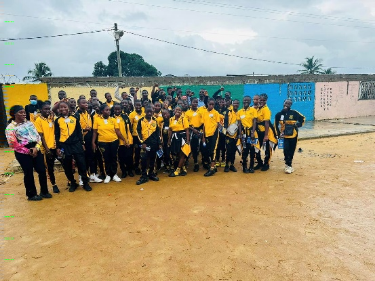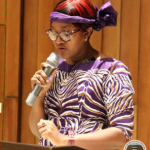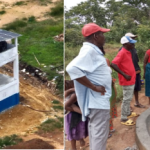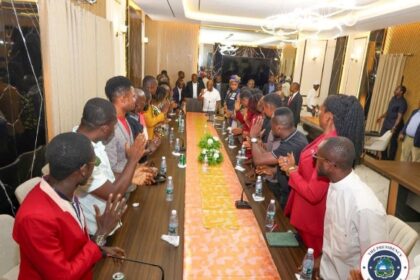In order to ensure the society’s sanity through environmental mindfulness, the Reduction of Waste (RoW) over the weekend conducted an environmental workshop with students of Zion Praise Christian Academy on the Du-Port Road.
Held under the theme, “Knowing Your Environment”, students expressed gratitude for the workshop and vowed to exert what they learned in their various communities and in the society and the world at large.
“I learned how to prevent in-coming global warming by stopping garbage pollution everywhere in the community and in the streets,” Wilson M.O. Bentu, one of the students, said during an interview. “I will stop the cutting down of trees, because it reduces the sun’s radiation. If you cut down the trees, you are harming the environment and species.”
The Reduction of Waste was founded in 2019 and started official operation in 2022, according to Abraham K. Ziama, Administrative Manager of RoW.
The students’ environmental awareness initiative is a test case for the initiative to be extended to high schools in Montserrado County and its environs. If the test case succeeds, the organization will establish environmental clubs that will make sure they train high school students from junior high to senior high schools in climate change, environmental sustainability—to become ambassadors of the environment and champion the message in their communities.
According to Ziama, RoW has been doing pilot programs with other high schools in which it trained students in how to manage their waste in the classroom and environment, but has not had any workshop with students to train them to become waste management ambassadors.
“For the 2030 curriculum solar climate solution, this is the first school we are having the program with,” the administrative manager said.
Some of the topics discussed were environmental issues in Liberia, climate change, and the impact on Liberians and the world at large. In furtherance, sustainability practice and how to manage natural resources, environment and the home were also discussed.
“We talked about waste management, which captures the three ‘R’s’—reduce, reuse, and recycle,” Ziama said.
According to the administrative manager, the program focuses on young people or students because they are the ones that are mostly affected in terms of seeing more days to come. He added that they are the best persons to carry the information around, noting that teenagers, 17, 18, 19, when trained in environmental issue retain the learning—when they reach 30 years they will train people in the vulnerable communities.
“I learned about deforestation, and climate change, and what causes climate changes. It is caused by industrial areas that produce more heat to the earth and the atmosphere. My community will benefit a lot from me because there will be proper protection. No one will just drop dirt anywhere,” Deborah Bright Garfuan said. “People will be compelled to put their dirt in their pocket if they refuse to drop it in the trash basket. You don’t have to pollute the area. Start with your environment, start cleaning your yard, your room, living room, kitchen, and environment.”
RoW, which is multi-functional, is also involved with clean-up campaign, planting of 1,000,000 trees, a campaign to serve as a costal resilience project.
“If you cut one tree down, plant ten trees to save the environment and prevent the sun’s radiation, that is harmful to the environment and our well-being,” student Garfuan stated.
The waste management organization said they will decentralize its project nationwide, but wished to capture Montserrado County and its environs first.
“After we have succeeded in Montserrado County, we will extend to other parts of Liberia,” the organization’s administrative manager disclosed.
The workshop produced five speakers, who spoke clearly to the level of the students. Conservation, which one of the speakers said is managing natural resources—“eating” some and keeping some for future generations—was discussed, likewise biodiversity. He explained that different kinds of life exists in the environment. For instance, he said, bird species, tree species, plant and animal species, and how they affect the environment.
“The logs, the animals are national heritage for us. If you hunt them and cut them off, it is a bad signal. We have the Sapo National Park, Wologisi Mountain, Kpatawe Water Fall, Gola National Park, and so on, that we are depending on,” Ziama explained.
At the end of the workshop, the students divided themselves into six groups, and each group presented on a topic they chose.







